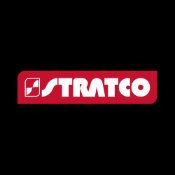
Master Industry-Recognised Tech Skills
At Upskilled Tech Academy, we provide cutting-edge, tech-focused courses designed to help you stay ahead in a rapidly evolving industry. Whether you're looking to upskill or prepare for official certifications from industry leaders like Microsoft, VMware, CompTIA, EC-Council, ITIL, and more, our flexible online training programs are tailored for modern learners.
Organisations we've worked with
















Our Tech Learning Partners






)
)
Why Choose Upskilled Tech Academy?
Whatever your business, we've got you covered

Frequently Asked Questions – Upskilled Tech Academy
Upskilled Tech Academy is a specialised training hub offering industry-aligned IT and cybersecurity courses designed to help individuals upskill, gain certifications, and advance their careers. The academy partners with leading certification providers such as Microsoft, CompTIA, EC-Council, ITIL, and EPI to ensure students receive cutting-edge training in high-demand fields. Whether you're looking to start a career in tech or build on your existing skills, courses such as the Microsoft Azure Fundamentals (AZ-900T00) or the Certified Ethical Hacker (C|EH) V13 provide the knowledge and certifications needed to excel in the industry.
Our courses are suitable for a wide range of learners, including:
- Beginners looking to break into IT through foundational courses like CompTIA A+ Core 1 & 2.
- IT professionals aiming for career advancement with certifications like the Microsoft 365 Administrator Course (MS-102T00) or the Certified Cloud Security Engineer (C|CSE).
- Cybersecurity enthusiasts seeking hands-on training in ethical hacking and network defense with courses such as the Certified Network Defender (C|ND).
- Business professionals who want to expand their IT skills with training in Power BI Dashboard In a Day or ITIL® 4 Foundation Course.
Yes! Many courses at Upskilled Tech Academy prepare you for globally recognised certifications from top vendors. For example:
- Completing the CompTIA Security+ Training equips you with essential cybersecurity skills and prepares you for the official CompTIA Security+ certification exam.
- The Microsoft Azure Administrator Course (AZ-104T00) covers cloud-based solutions and prepares you for the Microsoft Certified: Azure Administrator Associate certification.
- The Certified Ethical Hacker (C|EH) V13 course provides hands-on training in penetration testing and ethical hacking, leading to a recognised EC-Council certification.
All courses are delivered online, allowing you to study at your own pace and balance learning with work or personal commitments. Some courses, such as the Microsoft Azure Security Technologies Course (AZ-500T00), offer hands-on labs, case studies, and practical assessments to reinforce learning.
Upskilled Tech Academy provides a range of support options, including:
- Trainer support – Experienced IT professionals and certified trainers are available to guide you through the coursework.
- Student support team – Assistance with course access, resources, and technical issues.
- Exam preparation – Select courses, like the ITIL® 4 Foundation Course, include practice tests, exam prep materials, and study guides to help you succeed.
Enrolling is simple. Visit the Upskilled Tech Academy website, select your desired course, and follow the enrolment instructions. If you’re unsure which course is right for you, our advisors can help you choose based on your career goals and experience level.
Upskilled Tech Academy stands out because:
- Industry partnerships – We offer courses aligned with leading vendors such as Microsoft, EC-Council, CompTIA, and ITIL.
- Flexible learning – Study at your own pace with 24/7 access to course materials.
- Career-focused training – Our courses are designed to equip you with practical skills for the workforce.
- Certification preparation – Many of our courses provide official certification pathways, making you job-ready upon completion.















